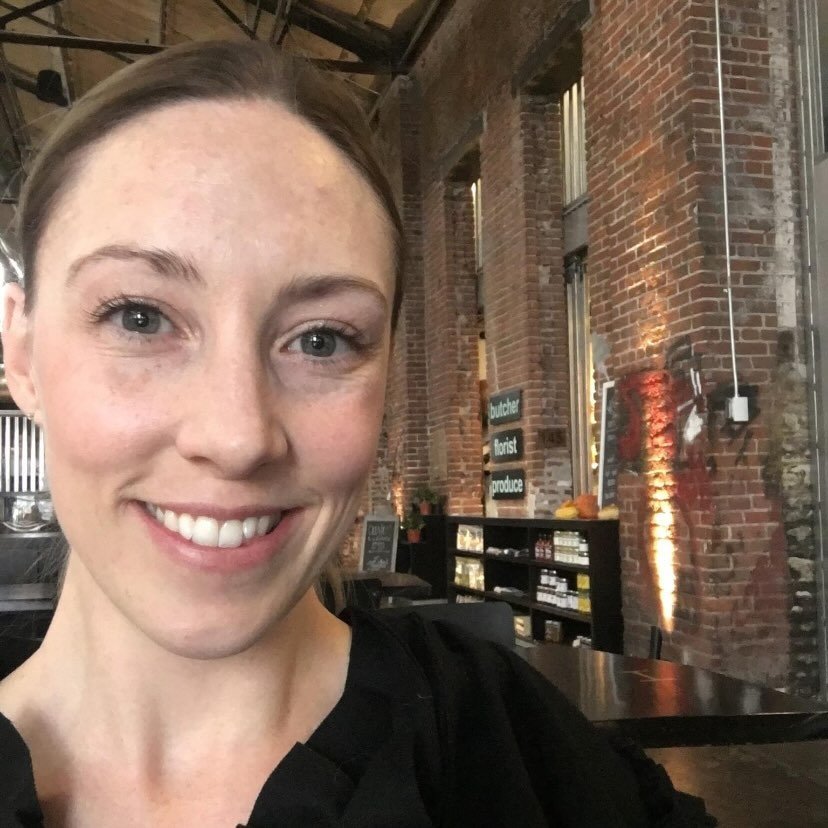One of the great things about the mattress industry is that it’s full of people who love to help other people. And that’s not only true for retailer-to-consumer relationships but also retailer-to-retailer.
In my continued search to learn how retailers can fight back against online review websites and large DTC marketing budgets, I connected with Elisabeth Cook, a professional Facebook media buyer and a Chicago-based mattress store owner.
There are few people more uniquely qualified to give advice on the subject of fighting online mattress review sites and DTC brands, so I sat down with her for an enlightening conversation about digital marketing in the bedding industry and how retailers can compete with the power of sleep health.
She says that from a general marketing standpoint, we need to understand the customer segment or the customer avatar you’re advertising to. Different retailers — big box, quality sleep shops, DTC brands, etc. — are selling to different customers and that should inform your marketing messages.
“We can break it into three easy chunks: sub $500 clientele, $1,500 clientele and then $1,600 and up,” she explains. “For a lower-end customer, the reason they buy is entirely based on price, and then since Covid, it turned into convenience. That’s because, with the commoditization of our market in the last four years, direct-to-consumer brands are as available as French fries.”
It’s clear that DTC brands in general are expert marketers, inside and outside the mattress industry. But Cook says DTC mattress brands have taken a high-risk, single-purchase product with no customer lifetime value (i.e. a subscription) and flipped the script. Yearlong return policies and comfort guarantees take the risk out of buying mattresses, so people buy online for that convenience.
But what this all comes down to, according to Cook, is that consumers have no idea of the importance of their mattress to their sleep quality.

“Whether it’s because they’re too young to get it or because it’s not in DTC and mattress review sites’ best interests to teach that a mattress can be bad for your body just like it can be good for your body. You have to find the right one. Review sites can lead people to brands but no one mentions the fact that the reviewer’s sleep needs are going to be different than the person reading the review.”
She says 35 and up are most likely to go to a quality sleep shop because they can’t live with their sleep problems anymore. They are seeking expert advice because they realize how important sleep is to their health.
So how do quality brick-and-mortar stores compete with the direct-to-consumer brands or review sites for an online purchase?
“Retailers have to learn digital advertising because that’s an education funnel, and the DTC brands and the review sites have educated consumers in a way that is palatable and valuable to that consumer base. Brick-and-mortar stores are still focusing on on getting reviews, but they need to fight fire with fire through strategic digital media that focuses on health.”
She credits sleep scientist Dr. Matthew Walker with much of the information she herself has used to educate consumers on the importance of sleep. A sleep neuroscientist at UC Berkeley, Walker has over 25 years worth of studies on sleep health.
“What will kill you faster: lack of food, lack of water or lack of sleep?” Cook asks. “Walker has studies to prove that lack of oxygen is the only thing that will kill you faster than lack of sleep. He has said that every physical, psychological, mental and emotional problem that exists is exacerbated thousands of times over when you are deprived of sleep. His science has made it possible to combat the message that DTC brands and the review sites are promoting — which is fundamentally that the mattress isn’t connected to your health.
She says physical stores needs to go further than just saying they have brands like Puffy or Nectar to drive consumer into the store — they need to send a message to consumers that they should come into the store to try them so they’re guaranteed to fix their sleep health the first time.
What retailers can do
In April 2021, Apple released an iOS update that requires users to opt in to sharing their Identifier for Advertisers, which allows advertisers to deliver personalized ads and track sales. The update requires that apps ask for permission before tracking users’ activity across the web.
These changes had a significant impact on advertisers because it made it harder for them to know if their mobile ads were working.
Cook witnessed first-hand the detrimental iOS updates that plagued retailers who had invested in their digital advertising, and as a store owner herself, she became incredibly frustrated by the fact that DTC brands were dominating the sub-$1,500 category because of their extensive marketing reach.
That’s why she is launching Three Flat Digital, a mentorship training program that will allow quality mattress retailers to learn about Facebook advertising and how they can make it work for their stores. She builds the content, which consists of video scripts, social media posts and much more, and mentors these retailers on how to use them.
But an important distinction between this mentorship and video-based training — which she will also be offering through the platform — is that the mentorship is a long-term solution. Retailers can work closely with Cook to figure out how her content can be catered to each individual store.
“It doesn’t work if I make a video for someone else’s store — consumers need to see their faces so they can develop a relationship,” Cook says. “This is not a course that you just buy and then you’re on your own. It’s taking what DTC brands have done and reverse engineering it to work for brick-and-mortar retailers. But it only works for quality sleep shops and it’s not made to work for stores with lower-priced products..”
The type of content Cook creates focuses on the importance of sleep to a person’s health, and her goal is to give consumers the necessary education to understand why a mattress is connected to that.
“Would someone who’s not struggling with sleep watch a three- to five-minute video about how you can solve their sleep problems?” Cook poses. “No, and that means that anybody who does is most likely in the market and struggling with that health problem. That signals buyer intent to the Facebook algorithm, which is exactly the same buyer intent that the DTC user-generated content and videos for the mattress review sites identify. They’re retargeting based on how many people watch a certain percentage of those videos. It’s not so much about creating a message that’s interesting to everybody. It’s about creating initial messages that are long enough that it’s going to resonate with anybody struggling with that issue.”
Cook is one of many retailers taking an aggressive approach to marketing and advertising, and she’s hoping to help other quality sleep shops do the same. Though spending more on advertising when sales are down may seem counter-intuitive, doing it right can pay off greatly.
For more information about Three Flat Digital and Cook’s mentorship program, contact Elisabeth@threeflatdigital.com.




